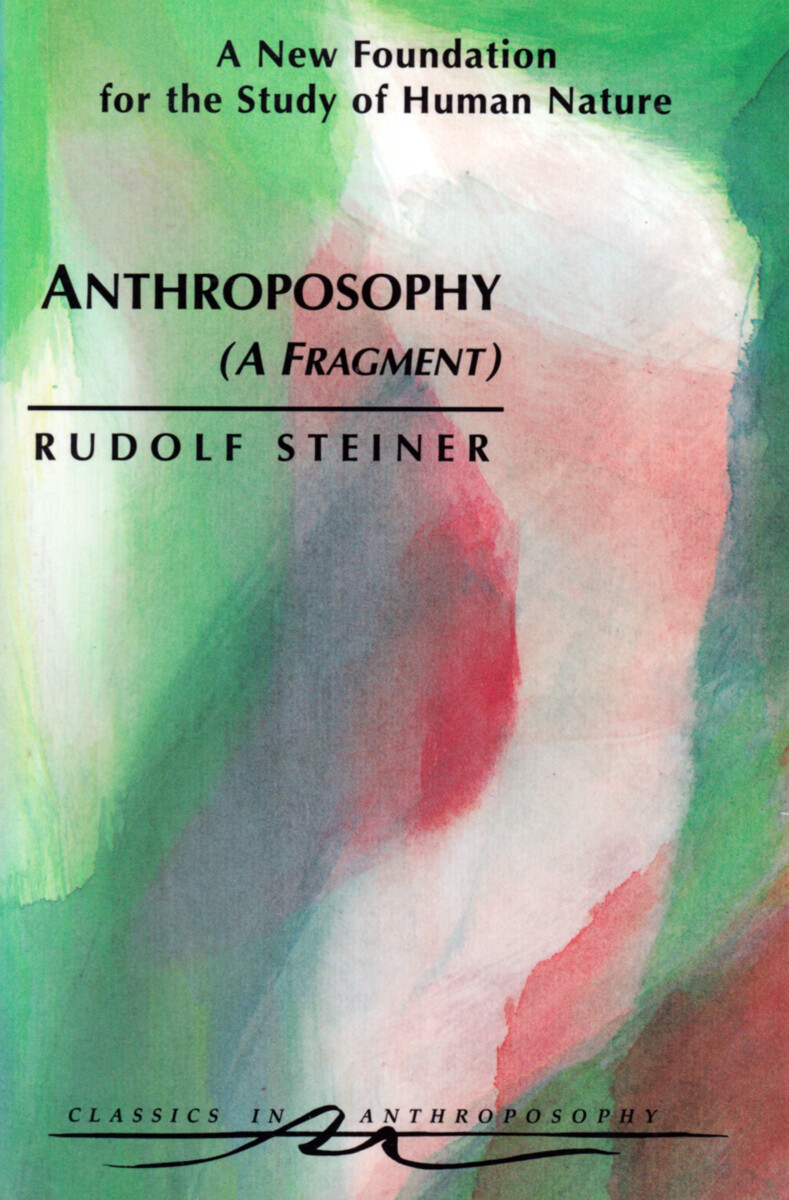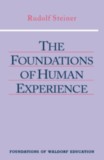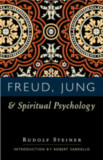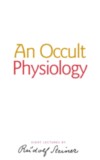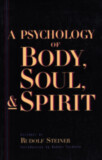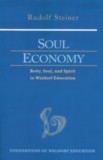Anthroposophy (A Fragment)
A New Foundation for the Study of Human Nature (CW 45)
Foreword by Robert Sardello
Introduction by James A. Dyson
Translated by Catherine E. Creeger and Detlef Hardorp
- Publisher
SteinerBooks - Published
1st April 1996 - ISBN 9780880104012
- Language English
- Pages 224 pp.
- Size 5.5" x 8.5"
Written in 1910 (CW 45)
“This remarkable work by Rudolf Steiner concerns the human senses, the life processes, and the forming of the human body; and it provides a basis for an anthroposophical understanding of the human being. It is also an indispensable foundation for the development of a spiritual psychology that adheres to an anthroposophical mode of thought. Rudolf Steiner himself indicated that the study of the human soul follows from an examination of the senses, and from there it is necessary to move to a study of the human spirit.” — Robert Sardello (foreword)
This written attempt to create a spiritual anthropology was found among Rudolf Steiner’s unpublished works after his death.
Although fragmentary, this key work on “Anthroposophy” is of enormous interest and importance. It is work whose time has finally arrived. Here are the first steps toward the development of a true psychology of spirit, using a phenomenological approach to the human senses, the life processes, the “I”-experience, the human form, and the human relationship to higher spiritual worlds. Steiner struggled to express the concepts related in this book, since many of the terms used in neurology, psychology, and cognitive studies did not yet exist in 1910. Since then there has been much progress, and this translation benefits from more than eighty years of development in the study of the human senses, cognition, and, neurology.
Steiner's Anthroposophy lies halfway between anthropology and theosophy, serving as a means to study the whole human being. By contrast, anthropology studies the human being with the physical senses and an empirical scientific method, while theosophy recognizes the spiritual nature of the human being based on inner experience and attempts to understand human nature in the realm of spirit.
Anthroposophy takes the middle way, studying human beings as presented to physical observation, while also trying to derive indications of the spiritual foundations of phenomena through a process of “phenomenological intensification.” The results of such “intensification” are vitally important and constitute the first steps toward a truly cognitive psychology.
This volume includes an introduction by neurologist Dr. James Dyson, an anthroposophic doctor; a foreword by Robert Sardello, co-founder and co-director of The School of Spiritual Psychology; and a translator's preface by Detlef Hardorp.
This is not an easy text, but Anthroposophy (A Fragment) is essential for understanding Steiner's view of the human body—especially its formation and function in relation to spirit.
Anthroposophy (A Fragment) is a translation from German of Anthroposophie: Ein Fragment aus dem Jahre 1910 (GA 45).
C O N T E N T S:
Introduction by Dr. James A. Dyson
Foreword by Robert Sardello
Editor/Co-translator Preface
Publisher's Foreword to the 1970 German Edition
1. The Character of Anthroposophy
2. The Human Being as a Sensory Organ
3. The World Underlying the Senses
4. The Life Processes
5. Processes in the Inner Human Being
6. “I”-Experience
7. The World Underlying the Sense Organs
8. The World Underlying the Organs of Life
9. The Higher Spiritual World
10. The Human Form
Appendices
Bibliography
Rudolf Steiner
Rudolf Steiner (b. Rudolf Joseph Lorenz Steiner, 1861–1925) was born in the small village of Kraljevec, Austro-Hungarian Empire (now in Croatia), where he grew up. As a young man, he lived in Weimar and Berlin, where he became a well-published scientific, literary, and philosophical scholar, known especially for his work with Goethe’s scientific writings. At the beginning of the twentieth century, he began to develop his early philosophical principles into an approach to systematic research into psychological and spiritual phenomena. Formally beginning his spiritual teaching career under the auspices of the Theosophical Society, Steiner came to use the term Anthroposophy (and spiritual science) for his philosophy, spiritual research, and findings. The influence of Steiner’s multifaceted genius has led to innovative and holistic approaches in medicine, various therapies, philosophy, religious renewal, Waldorf education, education for special needs, threefold economics, biodynamic agriculture, Goethean science, architecture, and the arts of drama, speech, and eurythmy. In 1924, Rudolf Steiner founded the General Anthroposophical Society, which today has branches throughout the world. He died in Dornach, Switzerland.


